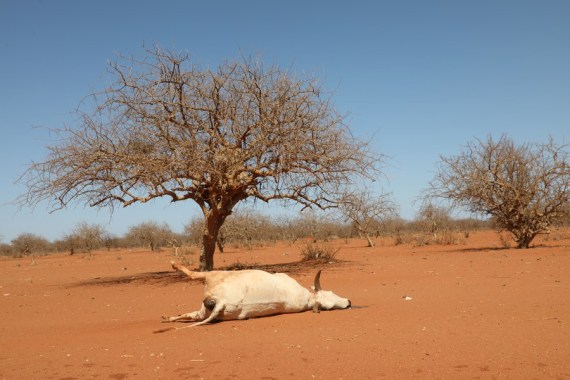Mental health disorders linked to climate change on the rise in Africa
The World Health Organization (WHO) contends that mental disorders have become a public health concern in Africa, citing Kenya and Nigeria where one out of four people seeking medical attention in healthcare facilities have a mental illness.

Mental health disorders like stress and depression have spiked in the sub-Saharan African region, fueled by devastating impacts of the climate crisis on the environment and livelihoods, a campaigner said on Thursday ahead of World Health Day to be marked on Friday.
NAIROBI, April 7 (Xinhua) — Mental health disorders like stress and depression have spiked in the sub-Saharan African region, fueled by devastating impacts of the climate crisis on the environment and livelihoods, a campaigner said on Thursday ahead of World Health Day to be marked on Friday.
Rosalid Nkirote, executive director of the Nairobi-based African Coalition of Communities Responsive to Climate Change (ACCRCC), said planetary warming was to blame for mental illnesses, which take a heavier toll on vulnerable communities in the continent.
“The impact of climate change on mental health is a growing concern, with studies showing climate change is associated with an increased risk of mental health disorders,” Nkirote said in a statement issued in Nairobi, the Kenyan capital.
Nkirote said the 2023 World Health Day themed “Health for All” should serve as a clarion call for African governments and bilateral partners to revitalize action on the climate crisis and improve mental health outcomes for communities.
The World Health Organization (WHO) contends that mental disorders have become a public health concern in Africa, citing Kenya and Nigeria where one out of four people seeking medical attention in healthcare facilities have a mental illness.
In Tanzania, five out of 100,000 people have committed suicide due to mental health disorders linked to anxiety, depression, anger, and substance abuse, WHO said.
Nkirote observed that deaths, destruction of property, and displacement of civilians triggered by the recent tropical Cyclone Freddy in southern Africa as well as acute drought in the Horn of Africa could escalate post-traumatic stress disorders among victims.
In addition, Nkirote decried the long-term emotional and psychological trauma that climate disasters were exerting on communities on the frontline of the climate crisis in Africa.
She added that climate-induced hunger, malnutrition, and water stress were also undermining the cognitive abilities of African children, besides lowering productivity among adults.
Nkirote said climate change and other planetary crises, including pollution and biodiversity loss, are escalating poverty, hunger, conflicts, and displacement, leading to mental health disorders among victims.
She urged governments to incorporate mental health promotion in national climate mitigation and adaptation policies besides investing in quality treatment and care for victims of climate disasters suffering from emotional trauma.







